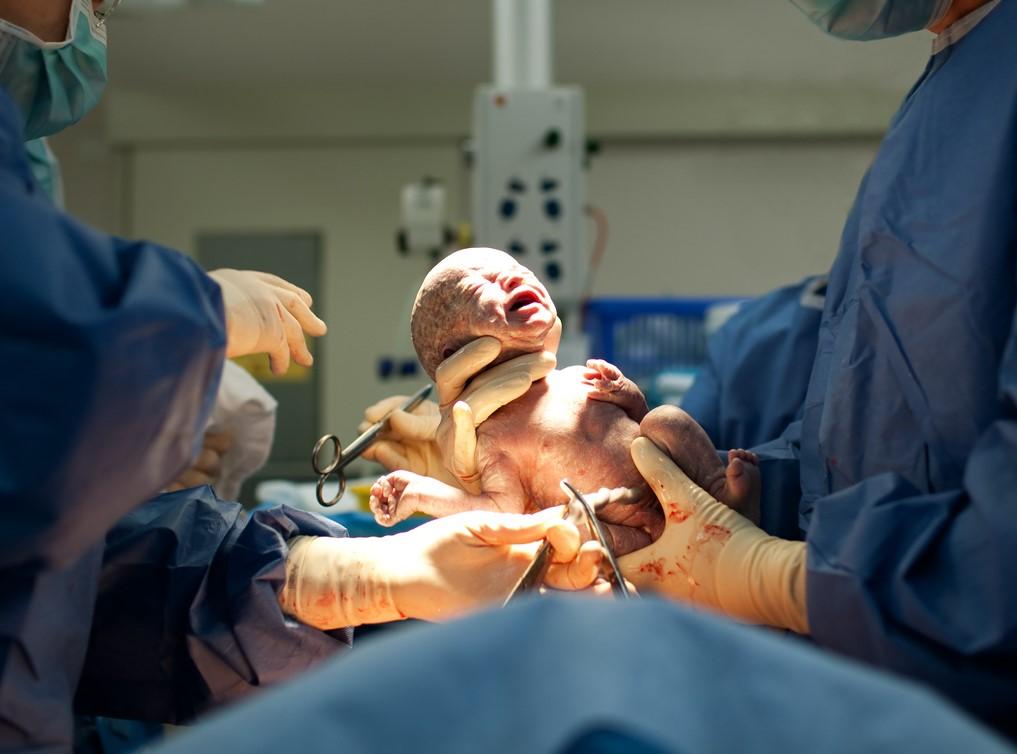A new study by researchers in the United Kingdom indicates that antibiotics given to pregnant women prior to a caesarean birth do not increase the risk of asthma, eczema, or other allergic conditions in children.
The findings of the longitudinal study, published yesterday in the BMJ, provide support for a policy instituted in 2011 by the UK's National Institute for Health and Care Excellence (NICE) that recommended prophylactic antibiotics before incision in women undergoing caesarean section, who are more susceptible to postpartum infections.
That policy was based on trials that found antibiotics were more effective at preventing postpartum infection when given prior to incision rather than after cord clamping. There has been concern, however, that the policy exposes newborns to antibiotics through the placenta when their gut microbiome is developing and can be colonized by opportunistic microorganisms.
A growing body of studies has found an association between early exposure to antibiotics and development of asthma, eczema, and other allergies in early childhood.
Impact on young children's health
To investigate whether pre-incision antibiotics have any impact on child health up to age 5, a team of researchers at the University of Birmingham and the University of Warwick examined the primary care medical records of more than 7.6 million UK children born from 2006 through 2018 and their mothers, which were contained in three UK-wide healthcare databases. More than a quarter of the children were born via caesarean section.
Using an interrupted time series design, the researchers compared the incidence rate ratios (IRRs) of asthma and eczema in children born by caesarean section after pre-incision antibiotics were recommended by NICE with those born when antibiotics were given post-cord clamping. Secondary outcomes included other allergy-related health conditions, autoimmune conditions, infections, and less specific child health measures.
Although routine medical records do not contain information on the use of prophylactic antibiotics for caesarean section, more than 98% of UK women undergoing the procedure receive them. The researchers used the year of birth and surveys of maternal care clinical directors to estimate the probabilities of babies being exposed to pre-incision antibiotics. Children born vaginally were used as a control group.
The analysis found that exposure to pre-incision antibiotics for caesarean section was not associated with an increased risk of asthma or eczema compared with no exposure. In fact, researchers observed a 9% decrease in asthma incidence (IRR, 0.91; 95% confidence interval [CI], 0.78 to 1.05) and a 2% decrease in eczema incidence (IRR, 0.98; 95% CI, 0.94 to 1.03) in children exposed to pre-incision antibiotics, though those differences were not statistically significant.
They also found no evidence of an increased risk of secondary outcomes.
When the researchers looked at children hospitalized for asthma and eczema, they found a 5% increase in first hospital admissions for asthma (IRR, 1.05; 95% CI, 0.99 to 1.11) and a 4% decrease in admissions for eczema (IRR, 0.96; 95% CI, 0.71 to 1.29) in children exposed to pre-incision antibiotics, but those difference were not statistically significant, either. There was no evidence of statistically significant increase in risk for hospitalization for allergic, autoimmune, or immune system-related conditions.
The analysis also found that the pre-incision antibiotic policy was associated with a 30% reduced risk of a composite outcome of maternal infectious morbidity (IRR, 0.70; 95% CI, 0.63 to 0.77). That finding is comparable to the estimates of a 28% to 43% risk reduction found in randomized controlled trials comparing pre-incision and post-cord clamping antibiotics.
"Our study suggests that a policy to administer prophylactic antibiotics before incision for caesarean section is not associated with risk of developing asthma, eczema, and other allergy related conditions in early childhood," the study authors wrote.
"The findings therefore provide supportive evidence for the discussion about timing of prophylactic antibiotics with women delivering by caesarean section and the recommendation to use antibiotics before incision to reduce maternal infections in the postpartum period."

























